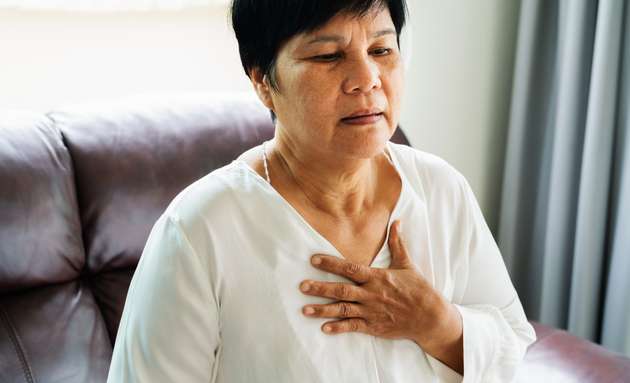Effects of Ageing : How to Live Actively at 80
Dec 07, 2018

The body goes through several changes as a person ages. Though ageing and its effects differ from person to person, problems with the digestive and cardiovascular system, memory, bones, muscles, joints and others are known to mount as one ages. But, according to doctors, all of these issues can be managed effectively and even people in their 80s can lead active lives.
How to Cope With The Effects of Ageing
-
Digestive Issues
Digestive issues are signs that the body is not getting ample fluids and the person is living on a low-fibre diet. Often, the commonest digestive issue faced by elders is constipation. The side effects of certain medicines can also give rise to this condition.
What Can Be Done
- Add physical activity to the daily routine; this helps the body stay active and keep health issues at bay.
- Have a diet rich in fibre. Vegetables, fruits and whole grains are rich in fibre and should be consumed regularly.
- Meat and dairy products may increase the chances of constipation, so they can be avoided.
-
Problems with The Cardiovascular System

Blood vessels become less flexible with age, making it harder for blood to flow smoothly throughout the body. The build-up of plaque in the artery walls disrupts blood flow to the heart. This increases the risk of issues like arteriosclerosis (hardening of the arteries), coronary artery disease, heart failure, angina (chest pain), and arrhythmias (irregular heartbeat).
What Can Be Done
- It is important to consult a doctor for problems related to the heart.
- Exercise regularly. Talk to a doctor to know how much one should exercise.
- Eat a balanced diet and cut down on foods containing excess fat and sugar.
- Get at least 8 hours of sleep.
- Avoid smoking completely as it is known to cause cardiovascular diseases.
- Manage stress levels.
-
Memory Loss
Losing one’s memory is a harsh reality of ageing. It becomes difficult to remember things as easily as before and disrupts daily routines as a result of it.
What Can Be Done
Play brain games like Sudoku and crossword puzzles more often. These activities are known to stimulate the brain and help in memory retention.
-
Bones, Muscles and Joint Problems

With age, the size and density of bones diminish. This sometimes becomes serious and takes the form of osteoporosis, a bone degenerative disease. The loss of bone density is higher in postmenopausal women, due to a gradual decline in female hormones called oestrogen and progesterone. As a person ages, a condition called sarcopenia can occur which is known to reduce muscle mass and strength, which in turn affects the performance of routine activities.
What Can Be Done
Adequate intake of calcium and vitamin D can help take care of the bones. Calcium, found in yoghurt, almonds, beans and lentils help maintain bone health. Vitamin D, which comes from food sources like egg yolk and mushrooms, helps absorbing calcium in the body. Physical activities are a must when it comes to maintaining healthy bones.
To improve muscle growth, eat adequate proteins which come from sources like egg, chicken and fish. Other protein sources include soy, milk products and pulses.
-
Skin Troubles
With age, the skin starts getting thinner and fragile and become easily prone to cuts or injuries. Certain underlying skin diseases like eczema can manifest as one gets older, that results in dry and scaly patches on the skin, which are itchy and irritating.
What Can Be Done
- Use lukewarm water to clean the skin as often as possible.
- Apply sunscreen on the exposed skin before stepping out.
- Use a mild soap for bathing, and moisturise the skin after a shower.
- Consult a doctor for any type of skin rash.
-
Complications of the Eyes and Ears
Eye problems such as cataract, blurred and low vision, and glaucoma (damage to the optic nerve of the eye) develop with age. Ears might also lose the ability to hear properly and the support of hearing aids might be needed.
What Can Be Done
Visit a doctor immediately for such conditions.
It should be noted that many health conditions are normal in the ageing process, especially when someone turns 80. It doesn’t necessarily mean aggravated health problems. Even as a person begins ageing, certain steps like maintaining a healthy lifestyle by eating right, hydrating the body, and exercising regularly can make a big difference.


